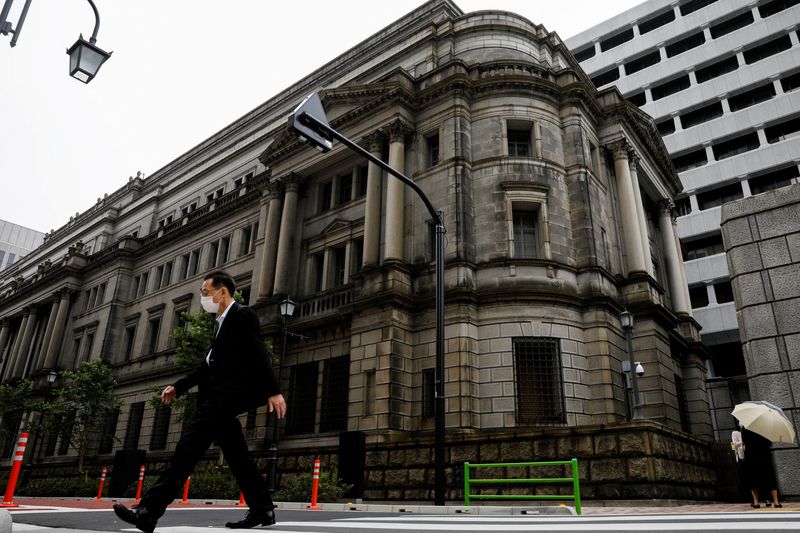By Leika Kihara
TOKYO (Reuters) -Bank of Japan (BOJ) policymakers debated the chance of a global economic slowdown, including a U.S. recession caused by the Federal Reserve's aggressive monetary tightening, a summary of opinions at their July policy meeting showed on Friday.
While many board members projected Japan's economy to keep recovering, some saw risks such as a renewed spike in COVID-19 infection cases and uncertainty over the global outlook.
"Monetary tightening by overseas central banks and a prolonged shortage of semicondoctors are among factors weighing on the global economy," one member was quoted as saying.
"As European and U.S. central banks tighten monetary policy, we must be vigilant to risks that could affect Japan's economy including the chance of the U.S. economy falling into recession," another opinion showed.
Fears of a U.S. recession are beginning to emerge as a talking point among Japanese policymakers as a real risk that could affect their policy decisions.
At the July meeting, the BOJ kept monetary policy ultra-loose to support a fragile economic recovery, a contrast to many other central banks that are raising interest rates to combat surging inflation.
"Risks to Japan's economic outlook are skewed to the downside, particularly regarding a resurgence of COVID-19 at home and abroad, prolonged supply-side constraints, and falling asset prices reflecting monetary tightening in major economies," one board member was quoted as saying in the summary.

The Fed raised interest rates by a widely expected 75 basis points on Wednesday, while its chair Jerome Powell said a recession was not necessarily required to tame inflation.
The U.S. economy shrank for a second straight quarter, data released on Thursday showed, amplifying an ongoing debate over whether the country is, or will soon be, in recession.